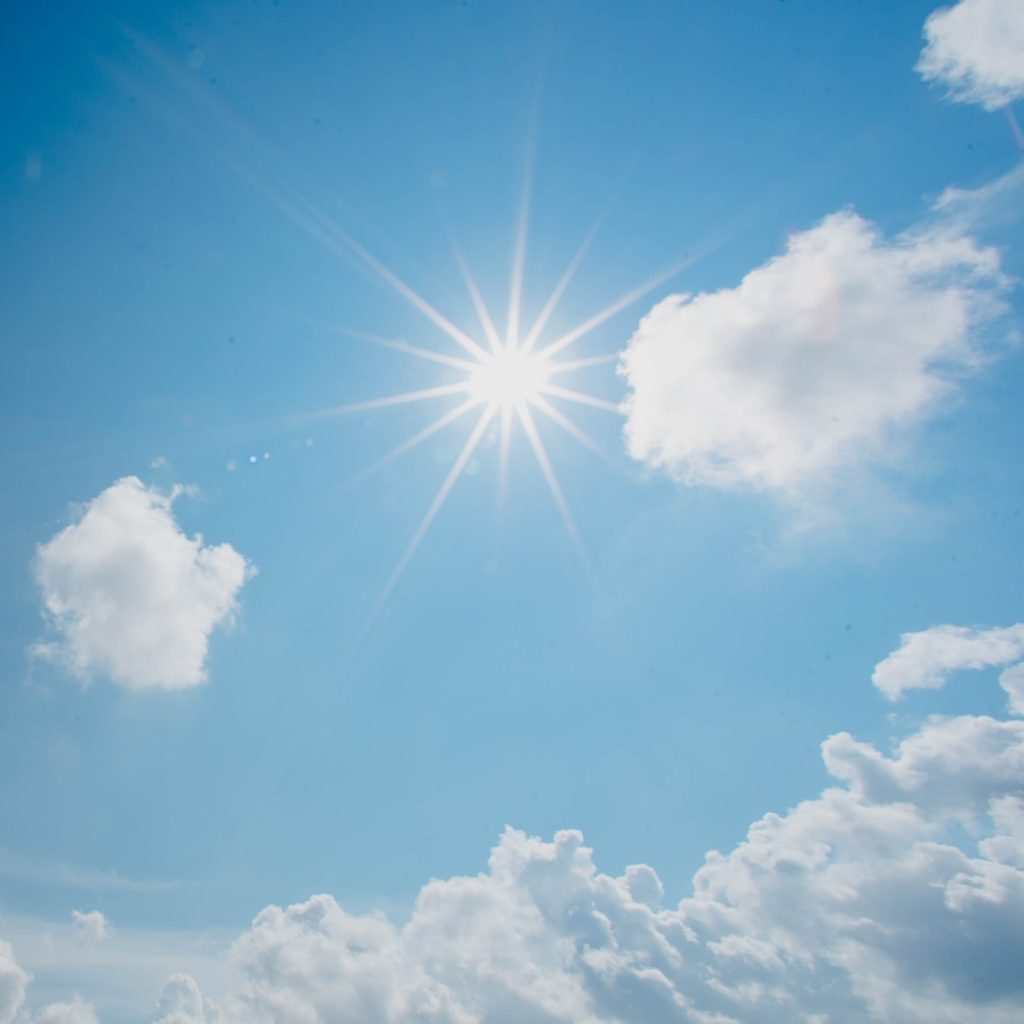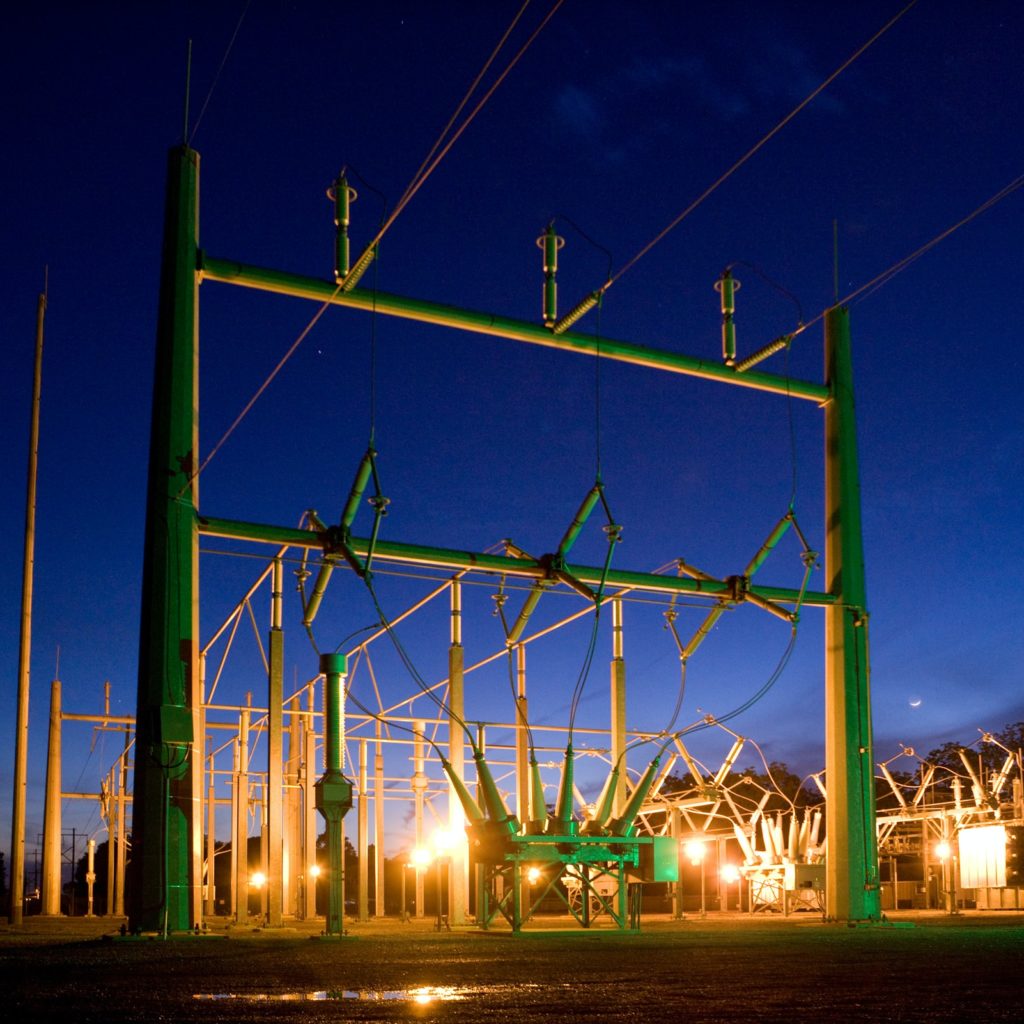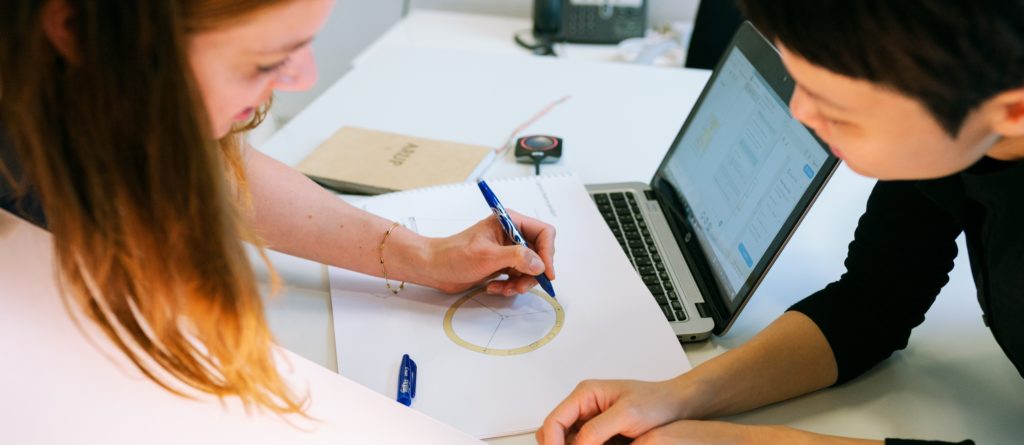IMAGINE A WORLD WITHOUT TVs, computers, Google, insulin, vaccines, ultrasounds, or rocket fuel to power spacecraft to the moon and beyond. Origins of the internet and all wireless communications today actually stem from a computer networking system developed at the University of Hawai‘i (UH) more than 50 years ago.
If it were not for university research, these world-changing technologies would not have been invented, developed or perfected. And if it were not for entrepreneurship and commercialization efforts, many of these innovations would still be sitting within university walls.
“University of Hawai‘i faculty, staff, students and alumni are developing world-class research and technology that have the potential to make a real impact on society and improve our way of life,” said Vassilis L. Syrmos, vice president for research and innovation at UH. “The role of our Office of Innovation and Commercialization is to help UH faculty and students translate their research and innovations into commercial opportunities that can benefit our local and global communities and economy.”
However, traditional accelerator and incubator programs cater to business savvy, full-time entrepreneurs, not academics whose jobs are to focus on research, teaching and technology. In response, this year the Office of Innovation and Commercialization (OIC) soft-launched a new innovation incubator this year, unlike any other program available.
Focused on long-term growth versus short-term investment, OIC’s innovation incubator addresses the unique needs and demands of UH faculty, students and alumni. Instead of quick, cookie-cutter training, the program provides concierge guidance, coaching and support to advance academics’ startup journeys over a 12- to 24-month period.
“We’re focused on supporting ‘deep-tech, high-impact’ technologies developed throughout the University of Hawai‘i System,” said Steve Auerbach, OIC interim director.
“Our program is customized to support our diverse faculty, staff, students and alumni. We hope to dramatically shift the traditional academic pathway by nurturing a culture of entrepreneurship that will help us to expand Hawai‘i’s innovation ecosystem and build a new economic driver for the state.”
The inaugural Spring ‘22 cohort includes three renewable energy startup companies — Hawai‘i Innovation Lab, Nimbus AI and Renewable Edge — who are all developing groundbreaking technologies that offer solutions to the growing and imminent need for renewable and sustainable energy sources worldwide.
“As an academic, I am particularly excited to participate in a program that has academics in mind,” said Giuseppe Tori, Spring ‘22 cohort participant, Nimbus AI co-founder and Department of Atmospheric Sciences assistant professor. “I think that the long-term view and the goals that the program’s amazing staff are helping us achieve are tailored to our experience, and I believe this is extremely valuable.”
Developed and operated by seasoned entrepreneurs and innovators, the incubator program allows each cohort to customize their curriculum and training, while mapping out personalized pathways and opportunities.
Cohort participants also meet with OIC’s innovation incubator team weekly to check in and discuss everything from their technology and funding opportunities to work-life balance and mental health.
While most programs commonly discuss and focus on the funding or financial runway, they rarely address the emotional aspects of entrepreneurship. A large portion of this program is dedicated to mentoring and coaching each individual participant on a “whole entrepreneurial” level, including their technology, where they are in their startup journey, what they need, where they may succeed, and especially how they think and will thrive.
“I’ve learned that entrepreneurship is a difficult and sometimes lonely journey, especially while crossing the Valley of Death that stands between research and successfully bringing it to the market,” said Arif Rahman, Spring ‘22 cohort participant, and co-founder and CEO of Hawai‘i Innovation Lab. “Since joining this program, I feel there is always someone to seek guidance while making critical business choices. The longer duration of the program and support system also helps reduce the fear of failure.”
In addition to helping cohort participants define their business acumen, company culture and customer discovery, OIC is also helping each participant enhance their operations and outreach, and most importantly, secure cash flow through investment capital or non-dilutive federal grants like Small Business Innovation Research (SBIR) and Small Business Technology Transfer (STTR).
As a recent guest speaker for the program shared, “federal grants are good, but getting an industry customer to fund you to solve a problem they have is much better customer validation.”
Upon securing an SBIR/STTR and matching funds during the program, each cohort company may receive up to $25,000 from OIC upon securing a matching award from Hawaii Technology Development Corporation (HTDC). That is in addition to the $25,000 in initial, milestone-based seed funding they receive from OIC through its UH Ventures fund.
“Supporting our cohort participants in generating early revenue is key to helping grow their business and encouraging seed-stage investors to invest in UH affiliated startups,” added Auerbach.
“This program has been critical in helping me navigate and gain confidence in the entrepreneurship journey with the end goal of placing our engineering ideas into meaningful real-world application,” said Kevin Davies, Spring ‘22 cohort participant of Renewable Edge. “I believe the program is especially effective because it puts business and financial concepts into terms that are much easier for engineers and scientists to understand, appreciate, and ultimately put in practice.”
Over the remaining 20 months of the program, cohort participants will continue to pursue both federal grants and other private funding opportunities, while focusing on refining their customer discovery, messaging and outreach.
“OIC’s innovation incubator program is deeply grounded in Hawai‘i, and through many on-island networking opportunities, it is helping us drive innovation and add value to the local communities that we feel committed to,” added Torri.
OIC will be launching its second, Fall ‘22 cohort later this year. The program is available to UH System faculty, and staff, as well as students and alumni partnered with faculty or staff who are part of a UH-affiliated startup company that is developing deep-tech innovations originated or developed through UH research. For more information about the program, visit research.hawaii.edu/oic/ideationstudio or email ideation@hawaii.edu.
OIC’s innovation incubator is supported by the U.S. Economic Development Administration (EDA) through a $2.7 million CARES Act Recovery Assistance grant. Seed funding for participants is provided by UH Ventures, LLC.
Hawai‘i Innovation Lab

Hawai‘i Innovation Lab (HIL) was co-founded in 2020 by a team of postdoctoral researchers, professors and graduate students at the University of Hawai‘i: CEO Arif Rahman, CTO Aaron Ohta, Kareem Elassy, Nalu Matthews and Wayne Shiroma.
Since then, the company has raised more than $525,000 in pre-seed funding through national and local accelerator and grant programs and competitions including: National Science Foundation’s (NSF) Innovation Corps (I-Corps); U.S. Department of Agriculture Phase I SBIR; American Made Solar Prize; and the Pacific Asian Center for Entrepreneurship (PACE) 2017 Breakthrough Innovation Challenge. HIL is working on developing an advanced reflective coating that is far more manufacturable and cost effective than the traditional coatings used for solar thermal technologies such as concentrated solar power (CSP). CSP offers higher efficiency power generation potential than photovoltaic (PV) because of its ability to produce and store thermal energy, which enables power generation during cloud cover and after sunset.
Nimbus AI

Nimbus AI was started by Geoff Galgon, computer science PhD student Kyle Hart, Information and Computer Sciences Assistant Professor Peter Sadowski and Atmospheric Sciences Assistant Professor Giuseppe Torri.
The company is developing artificial intelligence systems for predicting solar irradiance a few hours to days ahead. This has profound implications for the energy grid as more renewable sources are added which vary with weather. Improved forecasting enables utility operators to maintain energy grid stability via demand response and dynamic pricing. This is especially important for isolated grids with a lot of renewable sources, like in Hawai‘i.
Another participant of NSF I-Corps, winner of PACE’s 2020 Breakthrough Innovation Challenge and recent finalist of the American Made Solar Forecasting Prize, Nimbus AI has so far won over $70,000 in prizes to grow its company.
Renewable Edge

Kevin Davies, a UH Hawai‘i Natural Energy Institute assistant researcher founded Renewable Edge in 2022. The company is designing adaptable, smart devices to monitor and improve electric grid performance. These devices provide real-time data, analytics and controls to optimize the integration of renewable energy alongside smart appliances, electric vehicles and home battery systems. This technology will help utilities and system operators leverage the ongoing decentralization of electric grids, while increasing resiliency and sustainability.

